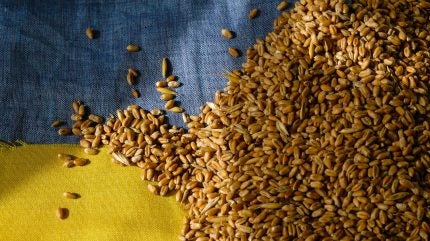
The European Commission and five frustrated EU member states have agreed a deal on grain imports from Ukraine.
Last month, Bulgaria, Hungary, Poland, Romania and Slovakia had banned imports of grain and selected other foodstuffs from Ukraine to protect prices for domestic farmers.

Discover B2B Marketing That Performs
Combine business intelligence and editorial excellence to reach engaged professionals across 36 leading media platforms.
The five EU members were unhappy farmers were having to compete with cheap imports coming in from neighbour Ukraine.
Despite the countries introducing bans on imports, there had been allowances for countries for produce intended for third countries to cross their borders.
Nevertheless, the EU had described the unilateral moves as unacceptable and convened talks with the five countries and Ukraine.
Yesterday (2 May), the European Commission announced a deal, lasting just over a month, had been finalised.

US Tariffs are shifting - will you react or anticipate?
Don’t let policy changes catch you off guard. Stay proactive with real-time data and expert analysis.
By GlobalDataBrussels described the agreement as “exceptional and temporary preventive measures on imports of a limited number of products” from Ukraine.
In a statement, the Commission said the deal centred on four products from Ukraine – wheat, maize, rapeseed and sunflower seed – even though there had originally been calls among the five member states for wider restrictions.
The deal, which lasts until 5 June, “is necessary given the exceptional circumstances of serious logistical bottlenecks” in the five countries.
The imports of the four foodstuffs from Ukraine can continue to enter other EU states and transit through the country’s five concerned neighbours.
“Today’s measures are part of a package which uphold our strong commitment to Ukraine, while addressing logistical and trade concerns in neighbouring EU Member States,” EU Commissioner for Trade Valdis Dombrovskis said.
“With this package, I am glad to say that we continue to pursue a unified EU approach, rather than unilateral measures which put at risk the normal functioning of our single market.”
The Commission is ready to keep the import ban alive after its current expiry date (5 June 2023) “as long as the exceptional situation continues”, it added.





